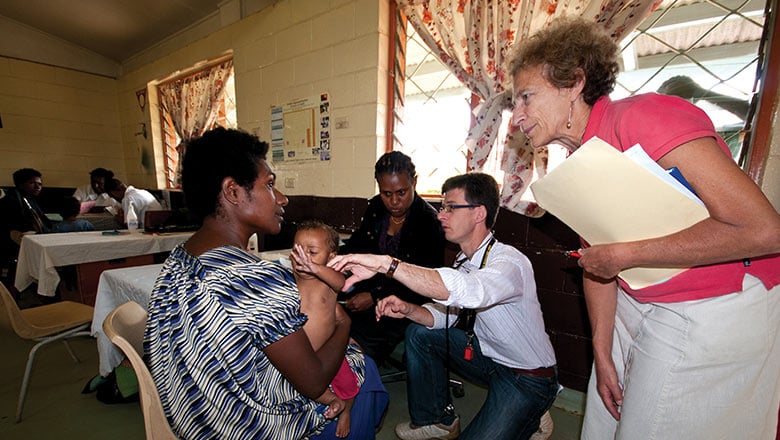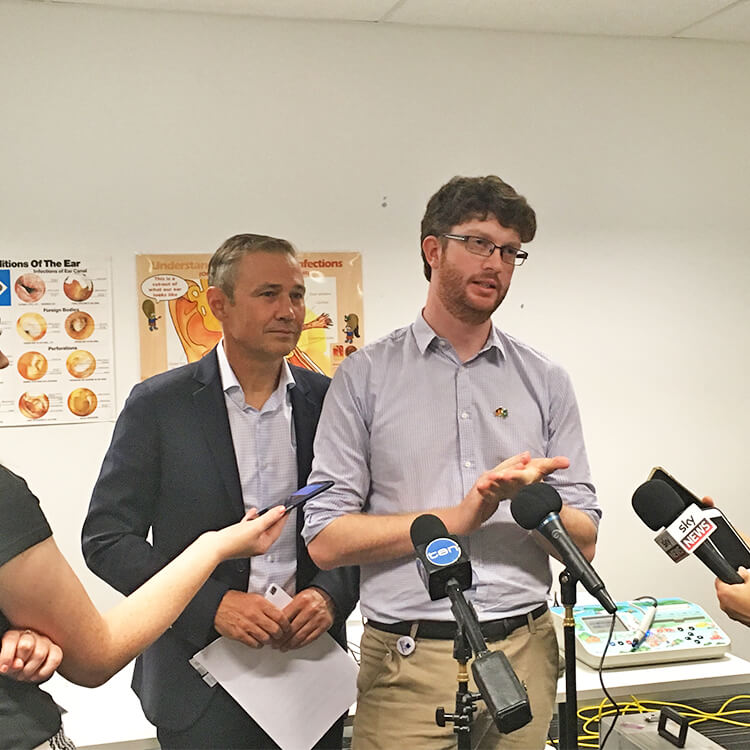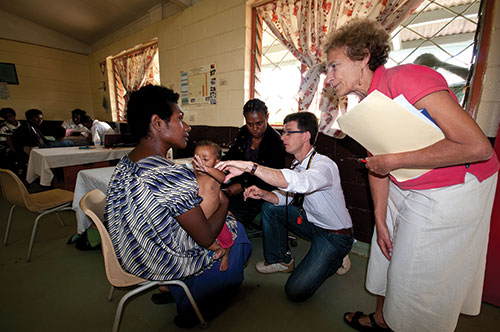Search

News & Events
Warm Welcome for the Neonatal Infection and Immunity TeamClinical Professor Tobias Strunk, Dr Andrew Currie and their Neonatal Infection and Immunity Team have become the newest members of the Wesfarmers Centre of Vaccines and Infectious Diseases.
Research
Antimicrobial Resistance in Enterobacterales, Acinetobacter spp. and Pseudomonas aeruginosa Isolates From Bloodstream Infections in Australian Children, 2013–2021Gram-negative bloodstream infections are associated with significant morbidity and mortality in children. Increasing antimicrobial resistance (AMR) is reported globally, yet efforts to track pediatric AMR at a national level over time are lacking.
Research
Postsepsis Care Needs in Children and Families: Single-Center, Codesign Qualitative Research from Western AustraliaSepsis, for children and their parents, is a life-altering illness with far-reaching psychosocial and physical impacts. We aimed to explore the needs of such patients and their parents after hospital admission for sepsis to inform the development of a Western Australian postsepsis care service.

News & Events
Researchers share their expertise with the community in CockburnResearchers from the Wesfarmers Centre of Vaccines and Infectious Diseases at The Kids Research Institute Australia have shared their expertise with the community in Cockburn, covering topics ranging from respiratory disease in babies to recurring ear infections in kids.
Research
Comorbidities and confusion: addressing COVID-19 vaccine access and information challengesEarly in the coronavirus disease 2019 (COVID-19) pandemic, evidence emerged that individuals with chronic and immunocompromising conditions faced increased risk of severe infection, including death. The Australian Government and public health authorities prioritised these citizens' access to vaccines, including them in phase 1b of the rollout from 22 March 2021.

News & Events
Collaborating to prevent killer diseases in PNGFor more than a decade, The Kids Research Institute Australia and Papua New Guinea Institute of Medical Research have been fighting against killer infectious diseases.

News & Events
New ear health study music to the ears of Aboriginal childrenWait times for Aboriginal children suffering ear infections could be reduced to less than four weeks thanks to a new The Kids Research Institute Australia research project

News & Events
The Kids Research Institute Australia researcher recognised for saving children in PNGClinical Associate Professor Deborah Lehmann has been recognised for her dedication to reducing the burden of infectious diseases in Papua New Guinea (PNG) with an award supporting research in the Western Pacific named in her honour.

News & Events
Multi-million-dollar investment in child health to support vital researchFour The Kids Research Institute Australia researchers have received prestigious fellowships and four significant cohort studies led or co-led by The Kids have received key grants under two new funding programs supported by the State Government’s Future Health Research and Innovation (FHRI) Fund.
Research
Human genetics of leishmania infectionsGWAS results provide firm confirmation for the importance of antigen presentation and the regulation of IFNγ in determining the outcome of Leishmania infections
